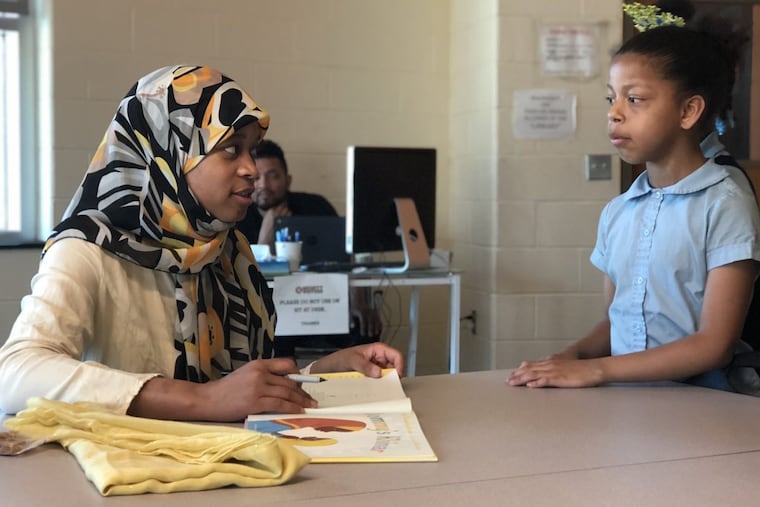'What are you?' 'Why do you wear that?' I'm an African American Muslim woman and I'm tired of explaining myself | Perspective
I have often felt a pressure to explain and justify my existence to others. The pressure to explain, explain, and explain is familiar to all minorities.

Ramadan is here, and I've got some resolutions. During this month of spiritual growth, I am resolving to use my time more wisely. I am letting go of the fruitless, demoralizing work of proving my humanity. I hope others will do the same.
As an African American Muslim woman, I have often felt pressure to explain and justify my existence to others. The pressure to explain, explain, and explain is familiar to all minorities. Members of the dominant culture see difference, develop biases, and then — implicitly or explicitly — demand explanations.
Cloaked in the politics of respectability, we walk through our white-dominated, Christian-influenced contexts like we owe everyone an apology. We apologize for being us. We think we have to explain.
My freshman year at New York University began with the 9/11 tragedy, and I did a lot of explaining then. In my classes, students and professors expected me to be able to discuss jihad as an expert. In the days and weeks after the attacks, I spent time in Muslim Student Association information sessions learning about jihad — something I knew little about beforehand — with other Muslim students who were also expected to explain.
We didn't know, at the time, to question this expectation. We didn't know we had the right to instead grieve as everyone else was grieving. We didn't know we had the right, and the need, to simply process being in such close proximity to the murder of thousands. We didn't know we had the right to just be.
The problem with putting the burden of explanation on minorities is that it can be exhausting labor that takes away time to address more important needs of an already marginalized people. Don't task individuals with teaching their culture, defending whole world religions, and speaking for groups of people that number in the hundreds of millions. And don't make a member of a minority explain themselves to you so that you can feel more comfortable.
This is not to say there is no room for dialogue or that people should not seek to understand minority groups. But you can learn without creating a burden for others.
First, take on the responsibility for learning. If you are in the dominant culture, know that others take the time to understand your culture all of the time, because not doing so means losing social currency. In our global world, this work is necessary for everyone. Fortunately, instant information is constantly at our fingertips. Use online resources and libraries. Go to events and places of worship. Be willing to compensate others for taking time to teach you, just as you would compensate someone for teaching you anything else.
Second, while it's reasonable to discuss culture or faith with someone you know, these topics should rarely be the first real discussion you initiate with a person you have just met. For example, don't ask a person of color, "What are you?" or a Muslim woman in hijab, "Why do you wear that?" Questions like these are rude, invasive, and suggest you see a person's otherness before you see their humanity.
To Muslims and other minorities, I say, let's resolve to have conversations on our own terms. While it's beneficial to share things about ourselves, we should never feel pressured to explain or justify. Allow yourselves the right to say "I would rather not discuss my background," or "I don't want to defend my religious beliefs."
And let's refuse to use the problematic frameworks the dominant culture has set out for us. I have previously written about the Islamic headscarf (hijab) in ways that are familiar and comfortable to African American Muslims. I do not make the expected apologies or defense for the hijab. Nor do I try to make others comfortable with it.
In this age of Kendrick Lamar, Childish Gambino, and Lemonade-era Beyoncé, it is OK to create work that centers on a marginalized audience— work that flouts the white gaze by not explaining, and isn't meant to make the mainstream comfortable. Progressive people can still appreciate this work and learn from it — even in discomfort.
Let's make no apologies for who we are this month. Let's just be. Ramadan mubarak.
Jamilah Thompkins-Bigelow is a program director at Mighty Writers and the author of the children's book "Mommy's Khimar."